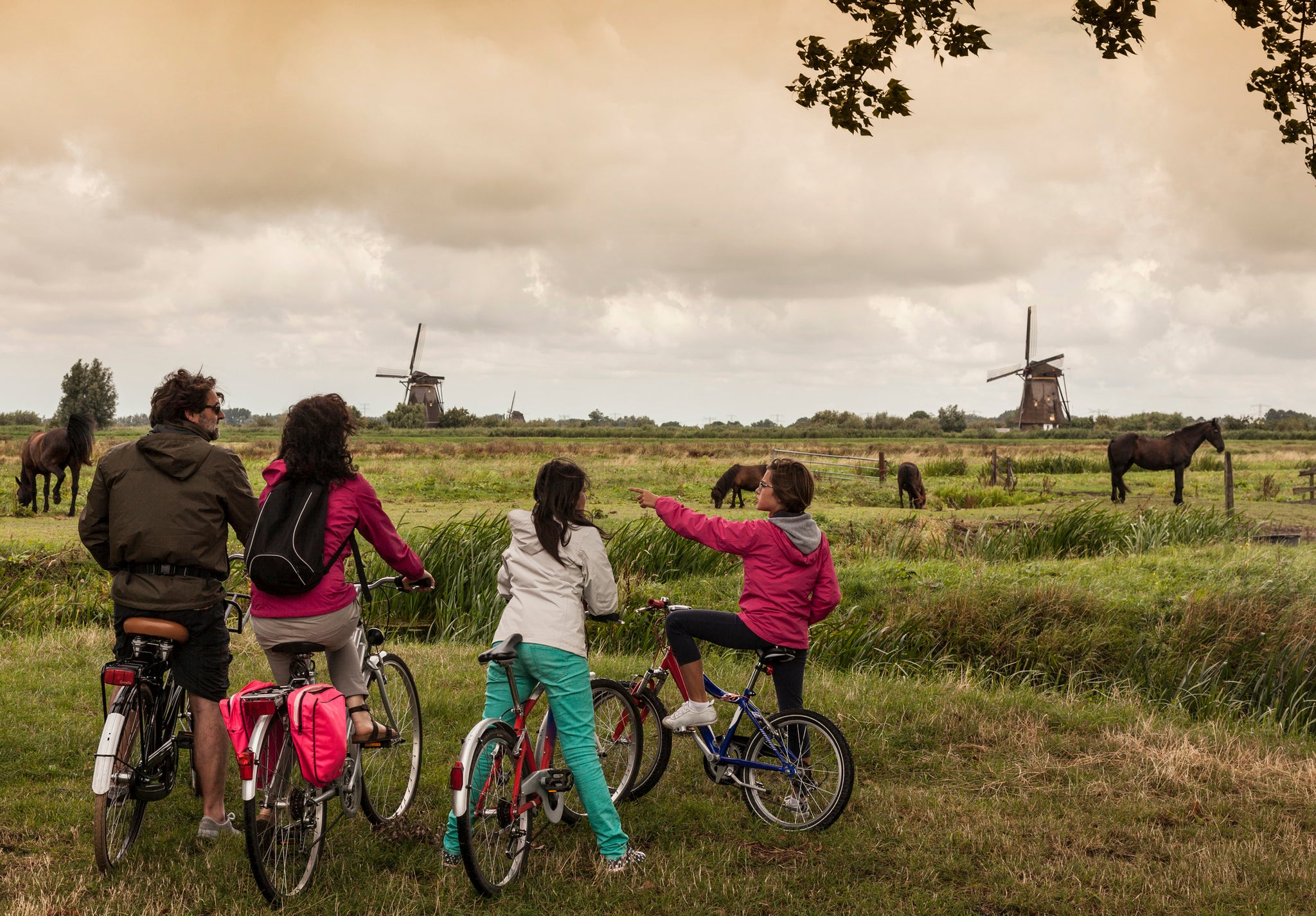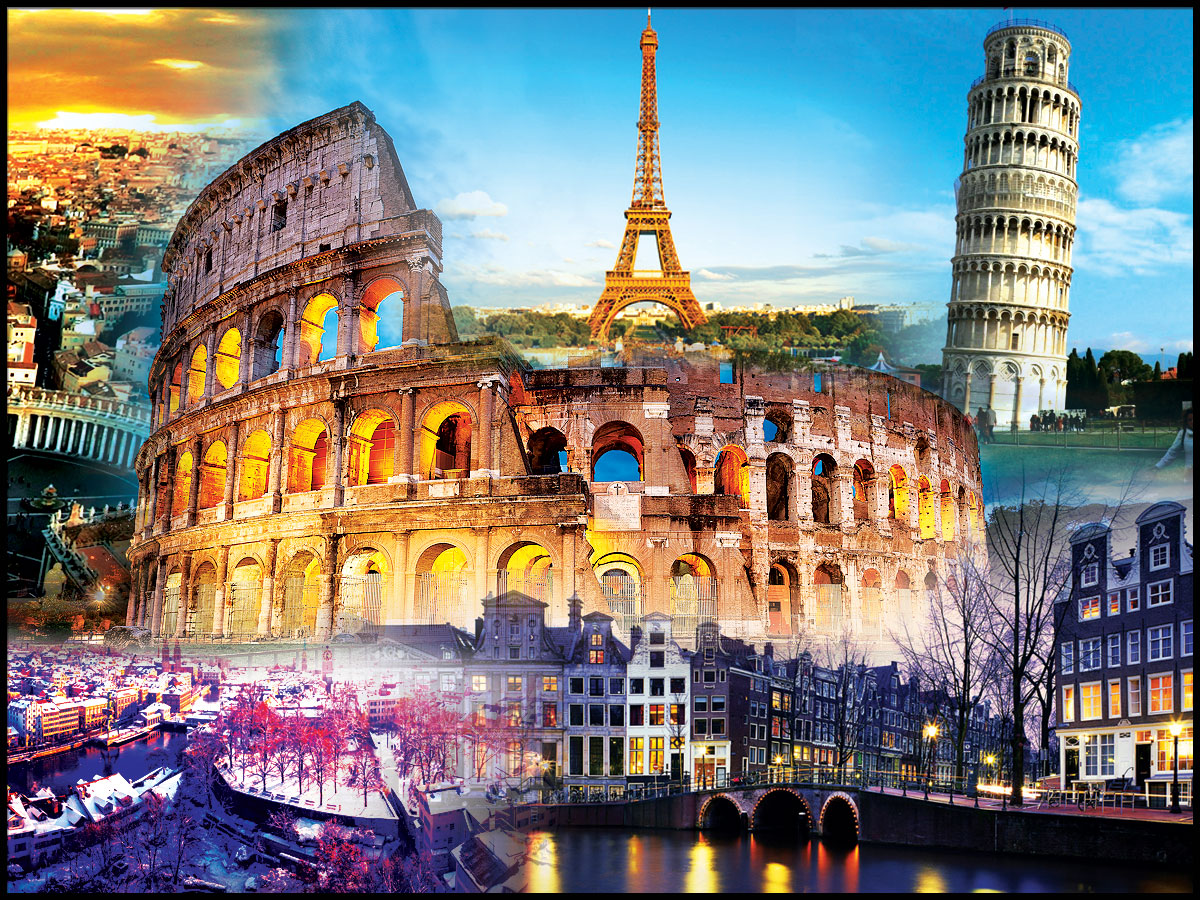Embark on an unforgettable journey with our meticulously crafted best European tours for families, designed to create cherished memories that will last a lifetime. From exploring iconic landmarks to immersing yourselves in vibrant cultures, our tours cater to every family’s unique needs, ensuring an enriching and unforgettable experience.
Our itineraries are carefully curated to balance educational and entertainment experiences, ensuring that both children and adults are captivated throughout the journey. We prioritize age-appropriate activities and attractions, allowing every family member to engage fully and create lasting memories.
Destination Highlights

Europe offers a myriad of family-friendly destinations, each boasting unique attractions, rich history, and cultural experiences. From the captivating castles of Central Europe to the sun-kissed beaches of the Mediterranean, there’s something for every family to enjoy.
Let’s delve into the highlights of some of the top European destinations that are perfect for a memorable family vacation:
London, England
London, the vibrant capital of England, is a melting pot of cultures and a treasure trove of historical landmarks. Families can explore iconic sights like Buckingham Palace, the Tower of London, and the Houses of Parliament. The city also offers world-class museums, such as the Natural History Museum and the Science Museum, which will ignite the curiosity of children and adults alike.
Paris, France
Paris, the City of Lights, exudes romance and charm. Families can marvel at the grandeur of the Eiffel Tower, visit the iconic Louvre Museum, and stroll along the picturesque Champs-Élysées. The city’s many parks, such as the Jardin des Tuileries and the Bois de Boulogne, provide ample space for children to play and relax.
Rome, Italy
Rome, the Eternal City, is steeped in ancient history and cultural heritage. Families can explore the ruins of the Roman Forum and the Colosseum, visit the Vatican City, and toss a coin into the Trevi Fountain for good luck. The city’s delicious cuisine and gelato will delight the taste buds of young and old alike.
Barcelona, Spain
Barcelona, the vibrant capital of Catalonia, is a fusion of art, architecture, and culture. Families can admire the masterpieces of Antoni Gaudí, such as the Sagrada Familia and Park Güell. The city’s lively atmosphere, delicious food, and beautiful beaches make it a perfect destination for a family vacation.
Amsterdam, Netherlands
Amsterdam, the charming capital of the Netherlands, is known for its canals, bridges, and picturesque houses. Families can take a boat tour to explore the city’s waterways, visit the Anne Frank House, and explore the interactive exhibits at the NEMO Science Museum.
The city’s bike-friendly atmosphere makes it easy to get around and enjoy the sights.
Itinerary Planning: Best European Tours For Families
When planning a family-friendly European tour, several factors should be considered to ensure a memorable and enriching experience for all. Age-appropriate activities, a balance between education and entertainment, and flexibility are key elements to take into account.
It is essential to choose activities and attractions that cater to the interests and abilities of children of different ages. This involves researching destinations and activities that are both engaging and educational. A mix of historical sites, museums, and outdoor adventures can provide a well-rounded experience.
Balancing Education and Entertainment
Striking a balance between educational and entertainment experiences is crucial. While it is important to expose children to cultural and historical landmarks, it is equally important to include activities that are simply fun and enjoyable. This can include visits to amusement parks, interactive museums, or engaging in local cultural activities.
Accommodation Options

When traveling with families, choosing the right accommodation is crucial. Europe offers a wide range of family-friendly options, each with its advantages and disadvantages.
The type of accommodation that best suits your family will depend on your budget, the size of your group, and your preferred style of travel. Here are some of the most common types of family-friendly accommodations in Europe:
Hotels
Hotels are a popular choice for families because they offer a wide range of amenities, such as room service, laundry service, and childcare. However, hotels can be expensive, especially during peak season. Additionally, some hotels may not be well-equipped to handle large families or may not offer amenities that are specifically designed for children.
Apartments
Apartments are a great option for families who want more space and flexibility. Apartments typically have a kitchen, which can save money on meals. They also often have multiple bedrooms and bathrooms, which can be helpful for families with older children or teenagers.
However, apartments may not offer the same level of amenities as hotels, and they may be more difficult to find in popular tourist destinations.
Vacation Rentals
Vacation rentals are a good option for families who want a home-away-from-home experience. Vacation rentals can be found in a variety of locations, from urban centers to rural areas. They often have fully equipped kitchens, multiple bedrooms and bathrooms, and outdoor space.
However, vacation rentals can be expensive, especially during peak season. Additionally, they may not be as well-maintained as hotels or apartments.
Hostels
Hostels are a budget-friendly option for families. Hostels typically offer dormitory-style accommodations, but some also have private rooms. Hostels often have communal kitchens and lounge areas, which can be a great way for families to meet other travelers. However, hostels can be noisy and crowded, and they may not be suitable for families with young children.
Camping
Camping is a great way to experience the outdoors with your family. Campgrounds in Europe are typically well-maintained and offer a variety of amenities, such as showers, toilets, and laundry facilities. Camping can be a budget-friendly option, but it is important to factor in the cost of equipment and supplies.
Transportation and Logistics
Efficient and convenient transportation is crucial for families traveling in Europe. Various transportation options are available, each with its advantages and disadvantages. This guide will help you plan efficient and cost-effective travel itineraries, ensuring a smooth and enjoyable journey.
Train Travel
Trains offer a comfortable and scenic way to travel between major European cities. They are generally reliable and punctual, and many routes provide ample legroom and comfortable seating. However, train travel can be more expensive than other options, especially for families with multiple children.
Additionally, train stations may not be conveniently located, requiring additional transportation to and from the station.
Bus Travel
Buses are a budget-friendly option for families traveling on a tighter budget. They offer a wide range of routes and schedules, making them a convenient choice for exploring smaller towns and rural areas. However, buses can be less comfortable than trains, with limited legroom and amenities.
Travel times can also be longer, and some routes may have limited departure times.
Car Rental, Best european tours for families
Renting a car provides the ultimate flexibility and freedom to explore Europe at your own pace. It allows you to access remote areas and attractions that may not be easily accessible by public transportation. However, car rental can be expensive, especially during peak season.
Parking can also be challenging and costly in major cities. Additionally, families with young children may need to consider the cost and availability of car seats.
Air Travel
Air travel is the fastest option for covering long distances within Europe. It can be a convenient choice for families with limited time or those looking to visit multiple destinations. However, air travel can be expensive, especially for large families.
Additionally, it is important to factor in the time and cost of transportation to and from airports.
Tips for Planning
- Research and compare transportation options based on your budget, travel style, and itinerary.
- Book tickets in advance, especially during peak season, to secure the best prices and availability.
- Consider purchasing a rail pass if you plan on extensive train travel within a specific region.
- Pack light to avoid checked baggage fees and make it easier to navigate train stations and buses.
- Allow ample time for transfers and unexpected delays.
Budget Considerations

Planning a family tour in Europe can be an exciting adventure, but it’s essential to consider the financial implications to ensure a stress-free experience. The costs associated with family tours can vary depending on several factors, including the duration of the trip, the number of family members, the destinations visited, and the level of comfort desired.
Understanding these factors and implementing smart budgeting strategies can help families optimize their expenses and make the most of their European adventure.
Cost Factors
- Duration of the trip:Longer trips generally incur higher costs for accommodation, transportation, and activities.
- Number of family members:The size of the family group can significantly impact expenses, particularly for accommodation and transportation.
- Destinations visited:Major cities and popular tourist destinations tend to have higher costs compared to smaller towns or less frequented areas.
- Level of comfort:Families seeking higher-end accommodations, dining experiences, and activities will encounter higher expenses.
- Time of year:Traveling during peak season or school holidays can lead to increased costs for flights, accommodations, and attractions.
Budgeting Tips
- Set a realistic budget:Determine the overall budget for the trip, considering the cost factors mentioned above.
- Research and compare costs:Explore different destinations, accommodation options, and transportation modes to find the best value for your budget.
- Consider off-season travel:Traveling during the shoulder seasons or off-season can result in significant savings on flights, accommodations, and attractions.
- Look for discounts and deals:Utilize travel websites, loyalty programs, and discount codes to secure lower prices on flights, accommodations, and activities.
- Cook meals:Dining out can be expensive, especially for families. Consider cooking meals in your accommodations to save money.
- Pack light:Avoid checked baggage fees by packing light and utilizing carry-on luggage.
- Take advantage of free activities:Explore free attractions such as parks, museums with free admission days, and walking tours to minimize expenses.
Safety and Health Concerns

Traveling in Europe with family presents unique safety and health considerations. Understanding these concerns and taking appropriate precautions can ensure a safe and enjoyable trip.
Travel insurance is essential for any family vacation. It provides coverage for unexpected events such as medical emergencies, lost luggage, or trip cancellations. Additionally, it’s crucial to ensure all family members are up-to-date on their vaccinations, especially those required for European travel, such as measles, mumps, and rubella (MMR).
Staying Safe and Healthy with Children
- Be aware of surroundings:Pay attention to people and activities around you, especially in crowded areas.
- Keep valuables secure:Use money belts, hidden pockets, or other security measures to protect passports, wallets, and phones.
- Stay hydrated:Bring reusable water bottles and encourage children to drink plenty of water throughout the day.
- Wash hands frequently:Use hand sanitizer or soap and water to prevent the spread of germs.
- Be cautious of food and water:Avoid eating raw or undercooked food from street vendors, and only drink bottled or boiled water.
- Seek medical attention promptly:If a family member experiences any health issues, don’t hesitate to seek medical attention from a reputable healthcare provider.
Cultural Etiquette and Customs

When traveling in Europe with your family, it is essential to understand and respect local customs and etiquette. This will help you avoid misunderstandings, build meaningful connections with locals, and create a positive and enriching experience for everyone involved.
Here are some specific cultural norms and practices that families should be aware of:
Greetings
- In most European countries, it is customary to greet people with a handshake or a kiss on both cheeks (known as “la bise” in France). It is important to be respectful of personal space and avoid touching someone without their permission.
- When meeting someone for the first time, it is polite to make eye contact and smile. Avoid speaking too loudly or interrupting others.
Dining Etiquette
- In many European countries, it is considered rude to start eating before everyone at the table has been served. It is also important to wait until everyone has finished eating before leaving the table.
- When dining at a restaurant, it is customary to leave a small tip for the server (usually around 10-15%).
Public Behavior
- In most European countries, it is considered rude to speak loudly in public or to litter. It is also important to be respectful of noise levels, especially in residential areas.
- When visiting religious sites, it is important to dress respectfully and to be mindful of your behavior. Avoid taking photos or talking loudly.
Summary

As you return home, you will carry with you not only souvenirs but also a treasure trove of shared experiences and a deeper understanding of Europe’s rich history and diverse cultures. Our best European tours for families are more than just vacations; they are investments in creating memories that will be cherished for years to come.
Questions Often Asked
What are the most popular European destinations for families?
Our tours encompass a range of popular European destinations, including London, Paris, Rome, Barcelona, and Amsterdam, each offering a unique blend of iconic landmarks, cultural attractions, and family-friendly activities.
How do you ensure the safety of families on your tours?
The safety of our guests is paramount. Our experienced guides are well-versed in local customs and safety protocols. We provide comprehensive travel insurance, ensuring peace of mind throughout your journey.
Can you accommodate families with children of different ages?
Absolutely. Our tours are designed to cater to families with children of all ages. We offer a range of activities and attractions that appeal to both younger and older children, ensuring an enjoyable experience for everyone.
